Environmental
Have nature’s back.
From giant cuttlefish in the sea, to arid deserts, subterranean caves, and rainforests teeming with life - our planet is a place of awe and wonder. It begs for exploration, deep understanding and increasingly - with threats looming - resolute action and safeguarding.
Where will environmental science take you?
A
Atmospheric chemist
Atmospheric chemists have been instrumental in highlighting the impact of pollutants on our environment sparking cultural and policy change around the world.
You might research the effects of VOC emissions from personal care products, like shampoo, or work on modelling the impact of CFC’s on the Earth’s ozone layer. Every discovery helps keep our world alive.
B
Biosecurity officer
You can expect to protect our regions and communities from all sorts of pests and pathogens as a future microbiologist and biosecurity officer.
It’s a fascinating role with a critical part to play in maintaining not only animal health, but agricultural and human.
Biodiversity officer
Help protect, manage and enhance the local environment through working with national parks and wildlife, conservation groups, government or non-government sectors and possibly even mining companies.
Botanist
Combine your love of science and nature as a botanist.
Study plant evolution, structure, development, and genetics in areas such as conservation and management of natural resources, agriculture, forestry, horticulture, medicine and biotechnology.
Biostatistician
Biostatisticians connect the dots between raw data and its meaning in areas like genetics and neuroscience.
You could design studies, gather data and analyse it, using your knowledge of maths, statistics and biology. Picture yourself influencing new or experimental treatments, or finding links between a particular lifestyle and disease.
Business development manager
Mix business know-how with scientific inquiry to help develop, manufacture or market products which require specific discipline knowledge due to their complex and innovative nature.
Think food safety, medicines and medical testing equipment or perhaps even precision agriculture.
C
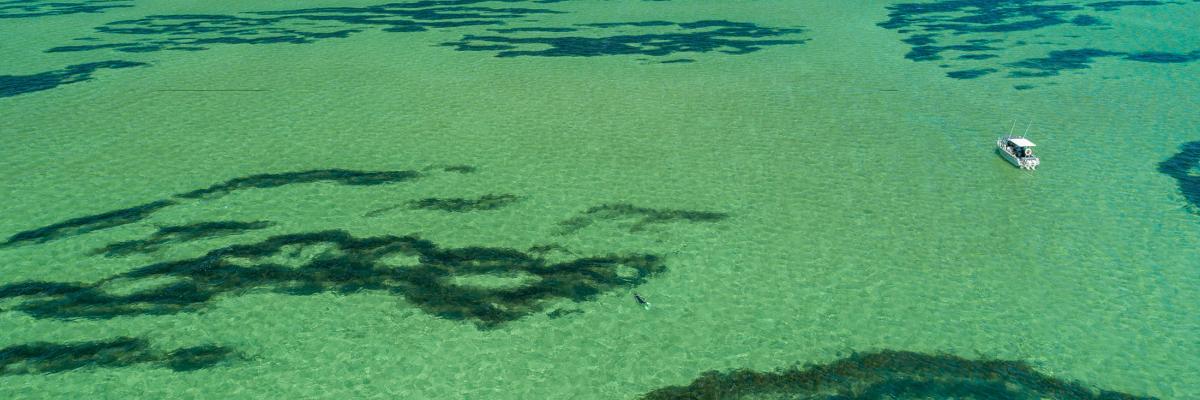
Image courtesy of George Steinmetz
Conservation scientist
Use your knowledge of ecology, conservation, and environmental factors to determine how best to conserve land and its inhabitants.
You might choose to focus on local wildlife, soil or water. Perhaps you’ll decide to tackle one of the world’s big issues such as mass extinction, dwindling natural resources and issues of biodiversity.
Crop scientist
Apply your expert knowledge to develop new processes and applications which solve local or global problems related to growing food, feed and fibre.
Think crop production in drought affected regions; pollution control; pest management or new ways to improve soil health.
Communicator or teacher
With scientific knowledge and understanding in such incredible demand worldwide, one of your most rewarding career paths could be to ‘turn the scientific light on’ for others.
You could engage the public as a science educator or journalist. You might develop a ‘citizen science’ app. Or maybe you’ll argue for science-backed change in a cinema-release documentary.
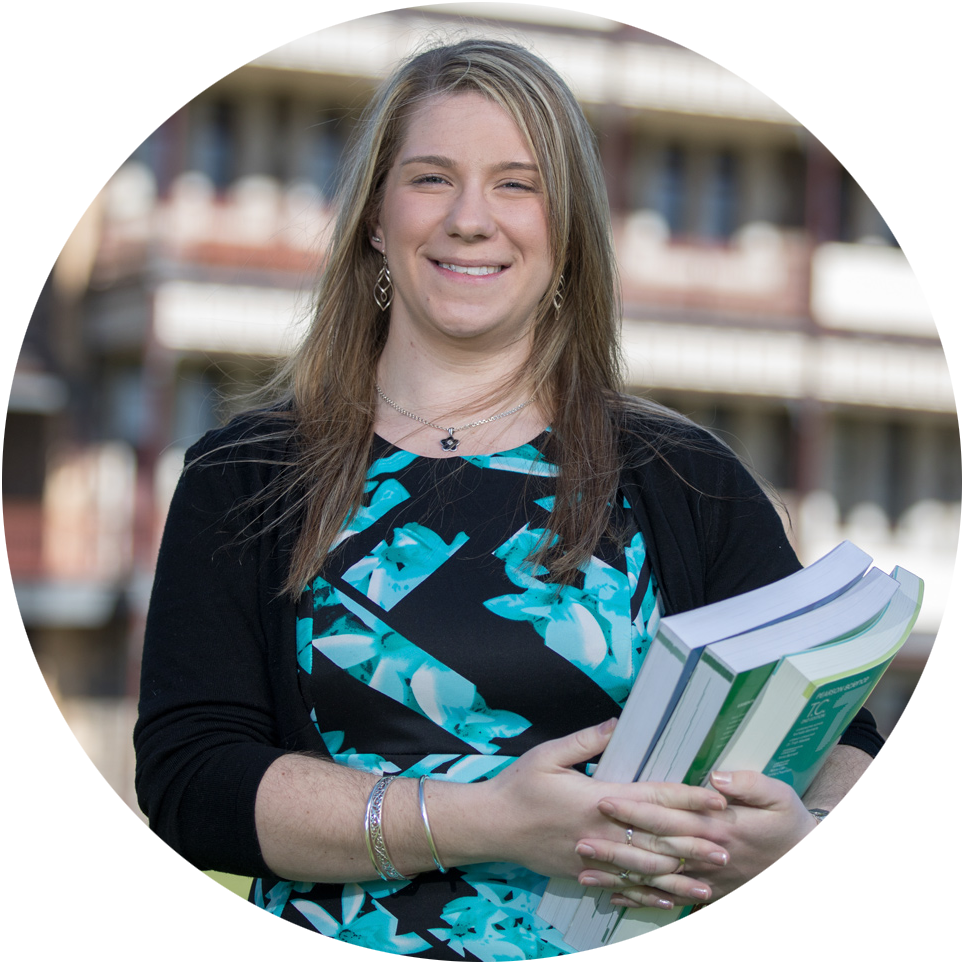
From student to science teacher
Alyssa Lumsden - Sacred Heart College
“There's nothing more rewarding than watching my students discover their talents and helping to foster them through experience." - Graduate of the BSc (Marine Biology)
Climate & ecosystem modeller
Design, develop, implement, test, maintain or exploit climate and ecosystem models.
You might work with meteorological services, universities or international research laboratories to help understand and predict climate change.
Chemical engineer
Controlling air pollution, turning salt water fresh, designing cosmetics and biodegradables, ‘growing’ drones - chemical engineers contribute across every sector in countless, world-altering ways.
D
Data scientist
Data scientists have already changed our lives—from optimising Internet searches to speeding cancer research and informing corporations’ financial decision-making.
Tomorrow you could build deep learning pipelines to guide autonomous air taxis, precisely match manufacturers’ supply to fluctuating demand or continuously enhance farms’ productivity based on real-time data feeds.
E
Evolutionary biologist
Use the latest techniques in palaeontology and molecular systematics to discover the wide diversity of plants and animals living on the Earth, and preserved as fossils from the past.
Put these skills to use working at a museum, herbaria or in research, where you can use the past to help plan for the future.
Environmental scientist
Our fragile environment and its ecosystems are under attack; melting glaciers, dried out rivers, pollution on a colossal scale.
Take the lead and help eliminate pollutants and hazards, how to mitigate and respond to global climate change or research the cause of mysterious diseases in wildlife and come up with solutions.
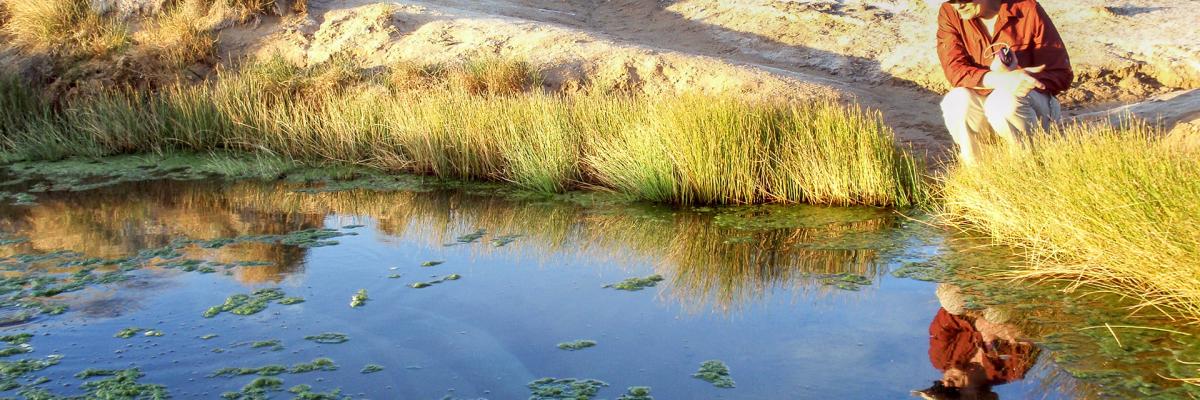
Ecologist
Ecosystems are a complex and delicate balance of nature. Even the slightest change can prove extremely disruptive.
You’ll help balance the interrelationship between organisms and their environment and make decisions which reduce our impact on the world around us.
Environmental manager
Forest protections, national parks, fishing guidelines, wildlife sanctuaries, sustainability policy - generating change is as much a profession as a science.
As an environmental manager you will play a huge role in determining the way forward for our planet and species.
Environmental chemist
You will play a key role in reporting on, and protecting against, the potentially destructive effects of chemical pollutants on ecosystems, animals and humans.
Entrepreneur
If Elon Musk can do it, so can you. Entrepreneurial scientists can blaze trails in any field.
You could develop and market anything from state-of-the-art space-travel technology and life-changing pharmaceuticals, to disease-preventing pet care products, new and sustainable food products, and waste-converting energy delivery.
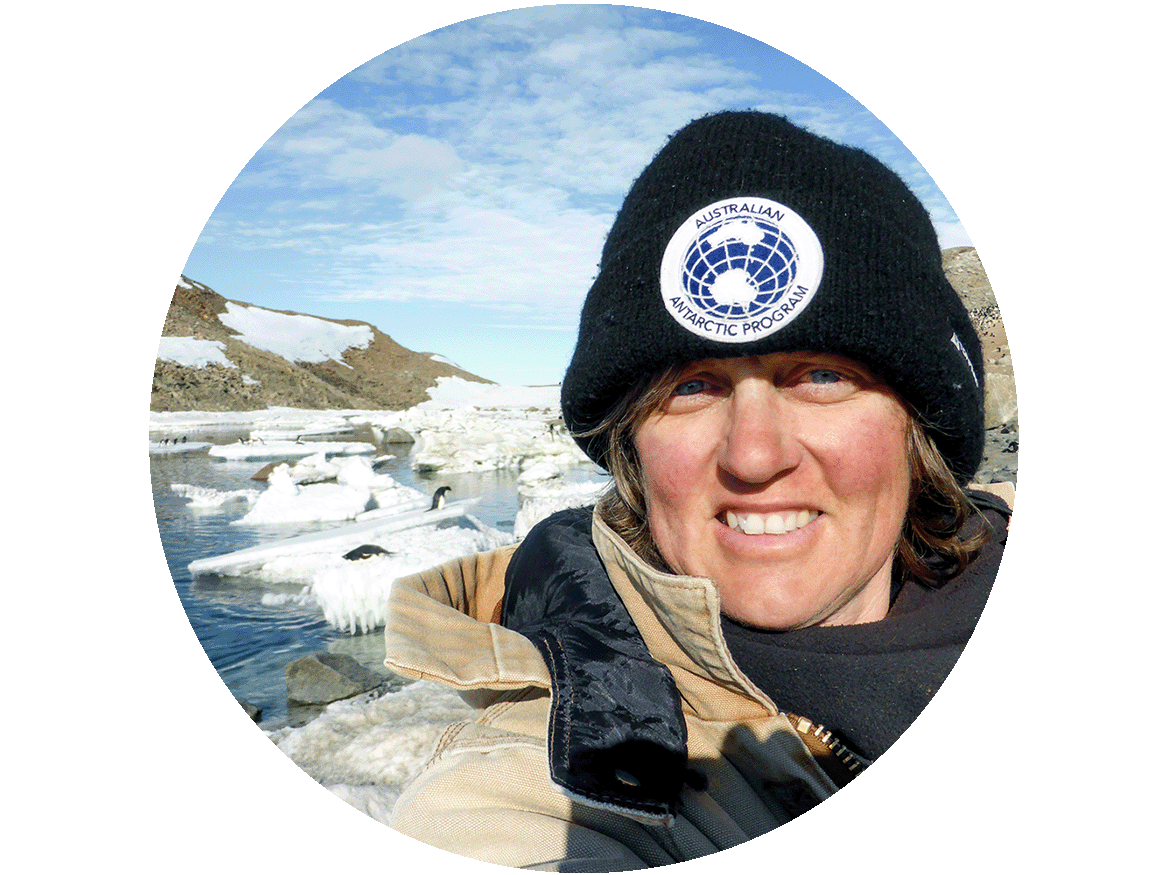
From student to ecologist / environmental scientist
Dr Louise Emmerson - Australian Antarctic Division
"The education I received at the University of Adelaide provided me with the confidence and ecological foundation to apply the skills developed from studying semi-arid vegetation to leading research on seabirds in Antarctica." - Graduate of the BSc (Hons)
Epidemiologist
Of all the people solving medical mysteries, epidemiologists are at the forefront of public health safety.
You will work to find the cause of disease outbreaks and find ways to contain the spread. You’ll investigate patterns, causes of diseases and injuries that affect people.
Ecotour operator
If you love being outdoors and want everyone else to see what you see in nature - wildlife, geology, cultural history - this is your chance to encourage travellers from near and far to tread more lightly on the earth.
The demand is growing and ecotourism businesses are innovating for low impact experiences which promote and support the local environment.
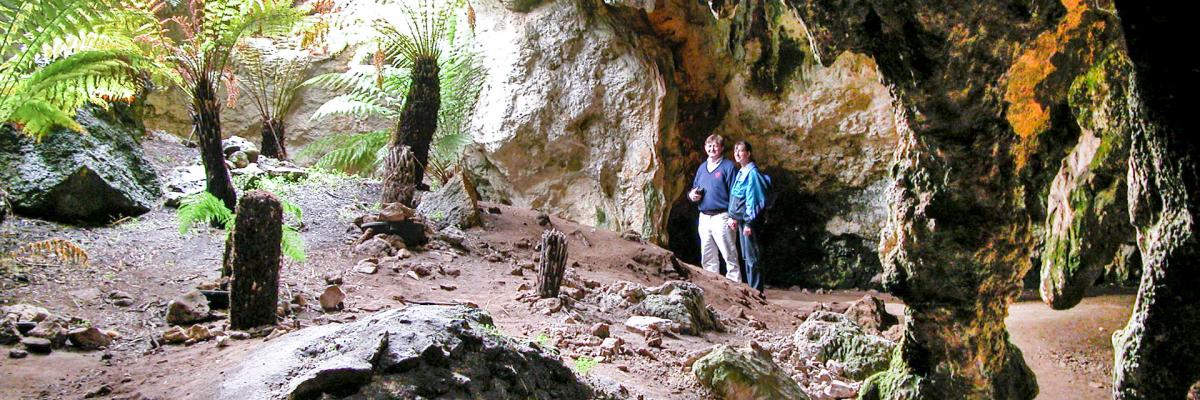
F
Forensic scientist
Forensic chemistry and toxicology have long been used to solve society’s most vexing crimes.
Down the line, improved investigation techniques, DNA sequencing and DNA phenotyping could revolutionise the way we make sense of forensic evidence.
Fisheries researcher
Assess and advise governments and industry on things like introduced species, population numbers, migration patterns or the impact of pollution in our waterways.
Your advice helps develop marine conservation and fishing policies, including in aquaculture.
G
Geobiologist
Geobiology is where geology and biology collide.
You might use billion-year–old biomarkers found in ancient sediments to learn about the environmental conditions and identify organisms which may have been present and of the time. Or you could examine human health issues, such as kidney stones or investigating the link between stable isotopes in human blood and in human diet.
Geospatial scientist
From drones to airborne and satellite images, remote sensing, geospatial information and 3D models are being used to observe our changing Earth from above.
These are now essential tools to improve our monitoring and management of the land and sea for agriculture, conservation and environmental management.
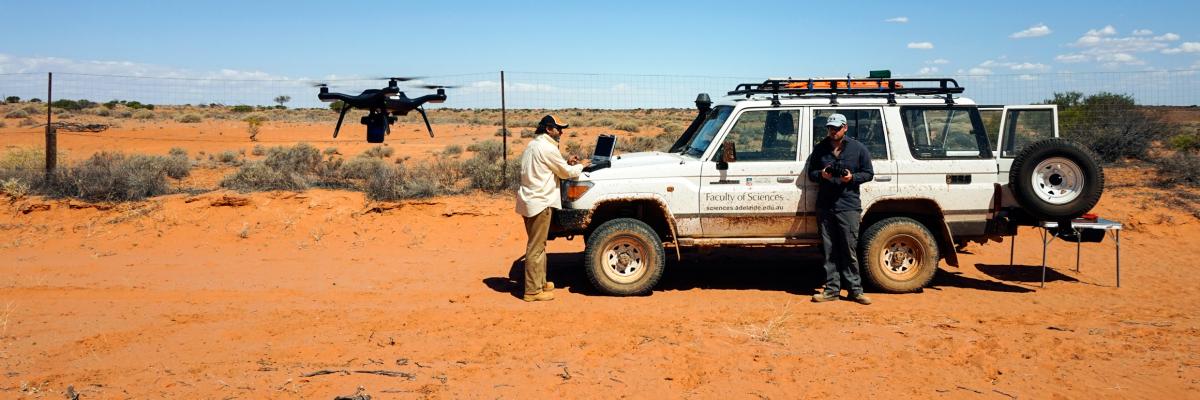
Geochemist
Explore how chemicals interact with the natural world using 3D geophysical surveys to pinpoint where to drill for petroleum source rocks, or you might work in environmental geochemistry to determine the impact of contaminants on plant, animal or human health.
Geologist
As an expert in what the Earth is made of and how it was formed you can choose to specialise in many different areas, ranging from consulting to mining companies, predicting earthquakes or preventing soil erosion.
You might even look skywards and become a space exploration geologist who unravels the geologic history of mars.
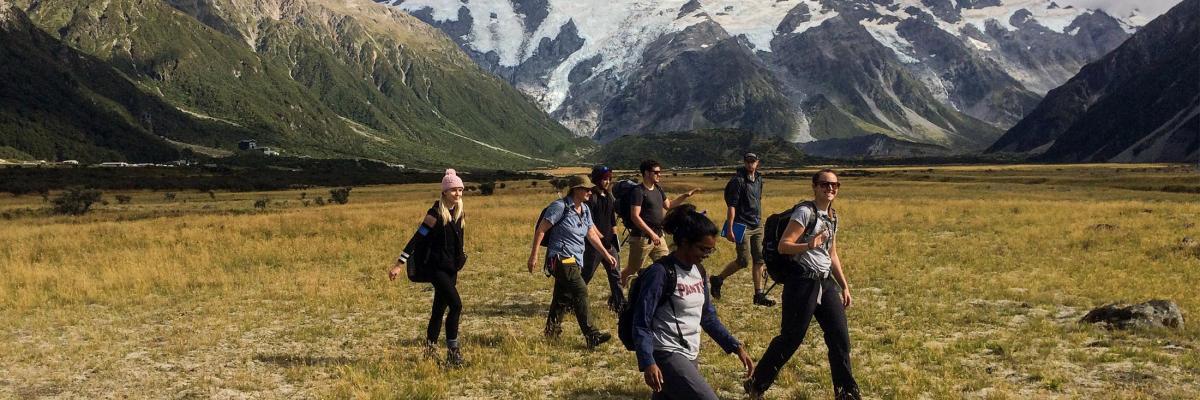
Image courtesy Alex Butter
Geophysicist
Geophysicists are the people who know why there might be gas in one part of the sea over another or why there is an oil deposit in this geological structure compared to that one.
You might monitor the earth’s movement with minute precision to help minimise the impact of earthquakes, or discover new subglacial lakes beneath ice caps.
Geoscientist
Right now, geoscientists search for deposits, drill for diamonds and classify geological discoveries.
The field’s brightest are beginning to virtually explore unmapped terrains with 3D modelling, repair mining’s environmental impacts and even attempt the interruption of tsunamis and earthquakes.
H
Horticulturalist
You will apply your scientific knowledge to the cultivation and propagation of fruit, vegetables, berries, flowers, trees, shrubs and crops.
You may also work in landscape design, parks and gardens, or the conservation and preservation of natural resources.
Hydrologist
Examine the physical properties of water, including its circulation, distribution and physical properties, both above and below the surface of the Earth.
Use your scientific expertise to advise engineers, developers and governing bodies on specific projects, policies or developments.
Hydrogeologist
Evaluate and manage the quality, quantity, reliability and sustainability of water resources.
You will likely work with a mining, petroleum, engineering or environmental consultancy firm, government department or geological survey organisation.
I
Innovation manager
Innovation is a key driver of scientific discovery. Big changes are underway in industries like medicine, agriculture and pharmaceuticals and they will accelerate in years to come.
As an innovation manager you can apply your scientific skills in any number of ways, from clearing the ocean of plastics, to pioneering a new biofuel or helping to launch new technology into space.
L
Laboratory technician or manager
If you love working in a lab, this job is a great option.
You will assist scientists by collecting and preparing samples, carrying out experiments and recording and presenting results for critical analysis. Once you gain experience you might manage a small team of people to ensure the smooth running of the laboratory.
M
Materials scientist
In the past, material advances - such as plastics - propelled powerful tech developments.
Materials scientists are now boggling minds with things like metal foams for animal prosthetics, fire-resistant building material coatings, unbreakable medical gloves and blast-proof concrete.
Marine biologist
Today’s marine biologists discover deep-sea organisms, research the effects of changing climates and dive on underwater volcanoes.
The next generation will map unexplored oceans, examine new life in high-CO2 worlds and help inform medical miracles by decoding marine creatures’ biological makeup.
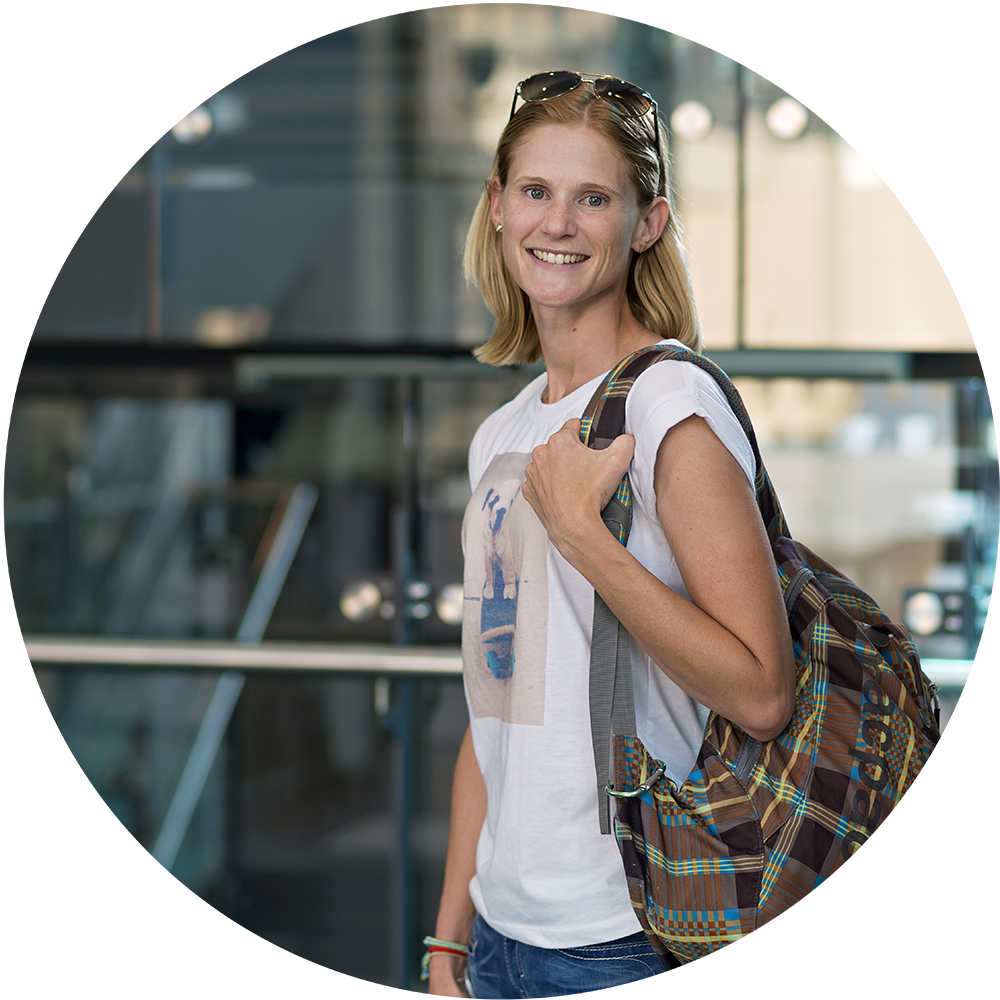
From student to marine biologist
Sarah Hamlyn - Staff Biologist, Monte Marine Laboratory at the International Centre for Coral Reef Restoration, Florida
“Studying the BSc (Marine Biology) has provided me with a solid foundation of knowledge that I rely on in my career today. I work in a field that is still developing, so the importance of noting patterns and making observations in the lab and field, which can then translate into hypotheses and designing sound experiments, was a very useful skill to have developed during my studies.” - Graduate of the BSc (Marine Biology)
Meteorologist
Understand, predict and monitor regional, continental and global weather or set your sights beyond the stratosphere on space weather looking at geomagnetic storms, solar winds and ionospheric disturbances...
N
Natural resource manager
Balance the need of landowners with the health of the ecosystem and the environment as a whole.
You might help develop government policies, ensure developers comply with regulations or oversee program facilities. You may also choose to specialise in land management or soil and water conservation.
P
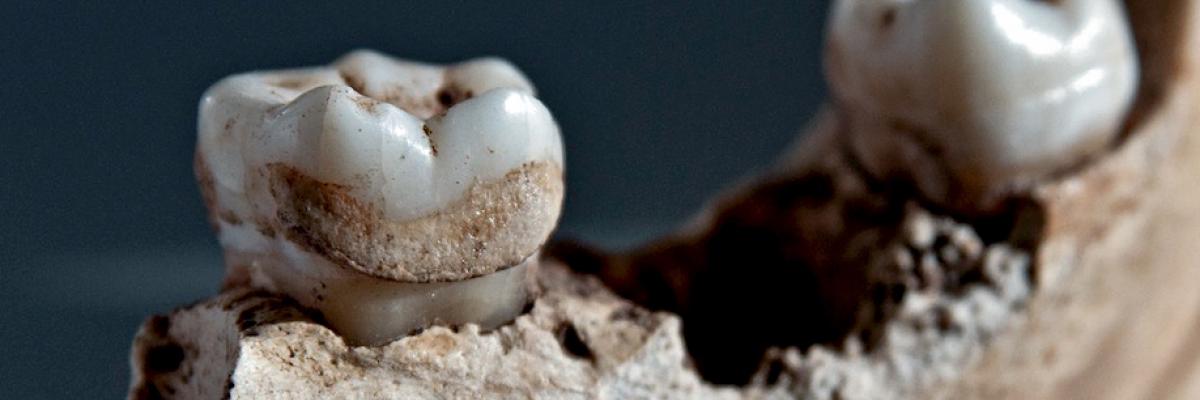
Palaeontologist
Predict the future as you unearth the past through discovering, studying and recording fossils of extinct plants and animals.
Use this information to determine the origin, age, and composition of fossils to develop a narrative about the past, which helps explain geological processes like fossilisation, historical events like ice ages, and scientific theories like evolution.
Public health scientist
As we move forward, scientific innovation will be critical for regulating health and sustainability, with huge changes in biodiversity management, waste control, pathogen detection and food quality assurance.
Understanding the geographic patterns of health risks and human responses helps improve how and where improvements are needed.
Policy officer
Scientists are under increasing pressure to create world-changing interventions; from gene editing to driverless cars, science needs policy officers to ask questions about the social and political implications of these innovations.
As a policy officer you might use your technical knowledge to ensure new environmental legislation is based in sound scientific evidence.
Parks manager
Apply your passion for animals and the environment in a job which promotes awareness, understanding and appreciation of the natural and cultural features of our natural environment. This might include working at a wildlife park, national park or a privately-owned reserve.
Plant biotechnologist
You will carry out innovative plant related research and development activities aimed at producing superior plant or crop varieties.
This will see you using your expertise in a research and development, advisory or consulting role.
Physicist
Explore how energy and matter interact. Most physicists spend their time conducting research for hospitals, private industry research centres or universities.
You may also be involved in the design of scientific equipment such as particle accelerators and lasers.
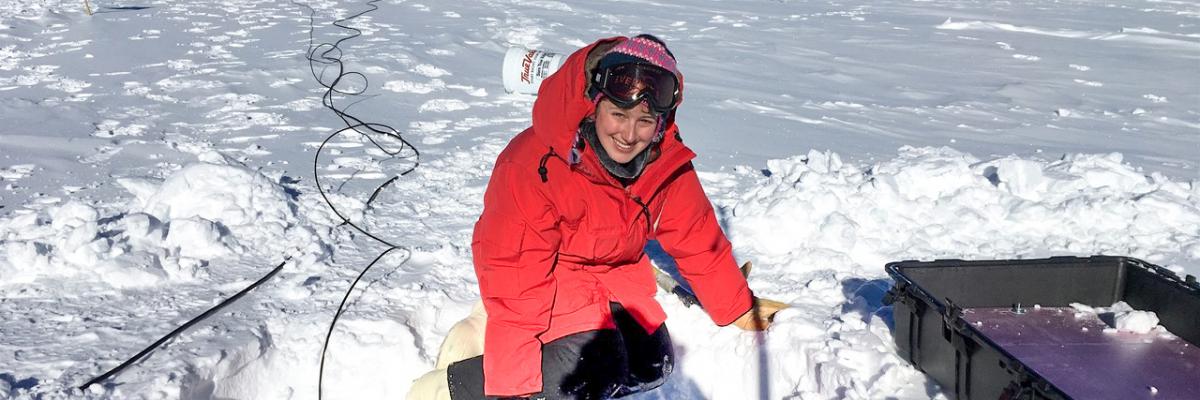
Q
Quarantine officer
Assist in the identification and control of biosecurity risks and hazards through managing the entry of agricultural and horticultural produce, plants, animals, various microorganisms and viruses that cross national and international borders.
R
Remote sensing scientist
Use new, advanced and remote technology, such as satellites and drones, to analyse objects or events without having to be in physical contact with the environment you are assessing.
Researcher
Australia has numerous federal scientific research organisations, such as the: CSIRO; Defence Science and Technology Group; Australian Antarctic Division; and Australian Institute of Marine Science. South Australia has many too. You’ll do important work and regularly collaborate with universities and industry.
Research & development manager
What’s your scientific pleasure - astrophysics? How does research with a company like SpaceX sound? Or one of Australia’s growing number of space start-ups?
If biotech’s more your thing, how about R&D for a giant like Samsung Biologics? Perhaps you’d like to consult to organisations like Adelaide’s Futuris Corp on future farming? Research opportunities are everywhere.

From student to industry development officer
Hannah McArdle - AUSVEG SA
“My course had a subject on professional skills which required students to complete a review after a minimum of three months’ work placement. One job I had during this time allowed me to see what industry I wanted to work in which is horticulture. I received my first job out of university after being connected to the employer by the University.” - Graduate of the Bachelor of Agricultural Sciences
S
Space scientist
When mankind first went to the moon, it was using computer power the equivalent of a modern-day smart phone. Now, we’re in the age of supercomputers.
Increasingly sophisticated technology can deliver deep research findings on astronomical movements, galactic evolution and as-yet-unanticipated phenomena. And space scientists help deliver the satellite images and communications we use in so many aspects of our lives.
Specialist
Countless thriving businesses owe their success, in large part, to staff with scientific expertise.
Picture yourself leading R&D for Virgin Galactic, managing environmental sustainability for an ecotourism developer, or overseeing cybersecurity for a major defence contractor.
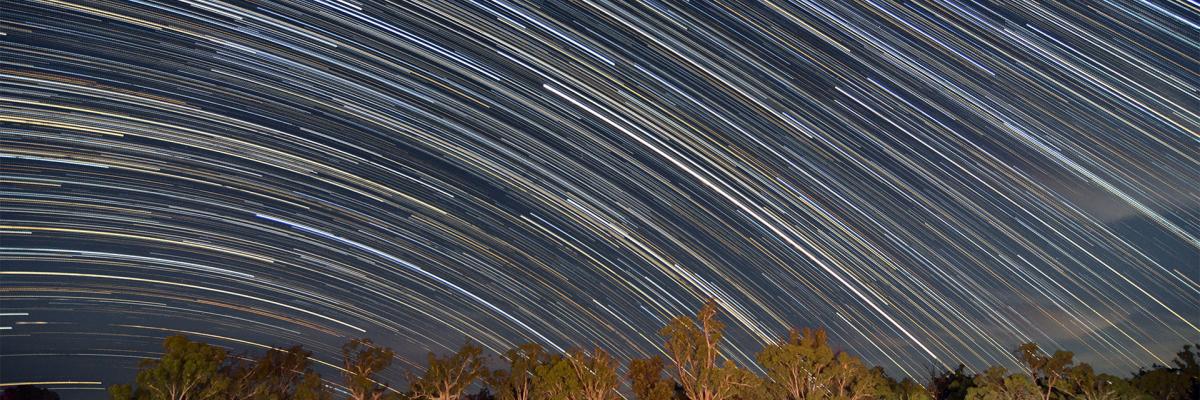
Image courtesy Wayne England
U
University academic
Research universities are absolute hives of scientific discovery. There are over 1,000 in the world - and Adelaide Uni is one of them.
Academics generally combine research, teaching and administrative duties and regularly collaborate with leading companies and research organisations all over the globe.
W
Wildlife conservationist
Wildlife workers the world over are busy managing nature preserves, reconstructing habitats for endangered animals and leading breeding programs in sanctuaries.
Conservation in the coming years will mean drones and AI in the field, safeguarding at-risk species through cryopreservation and facial recognition technology for fish.
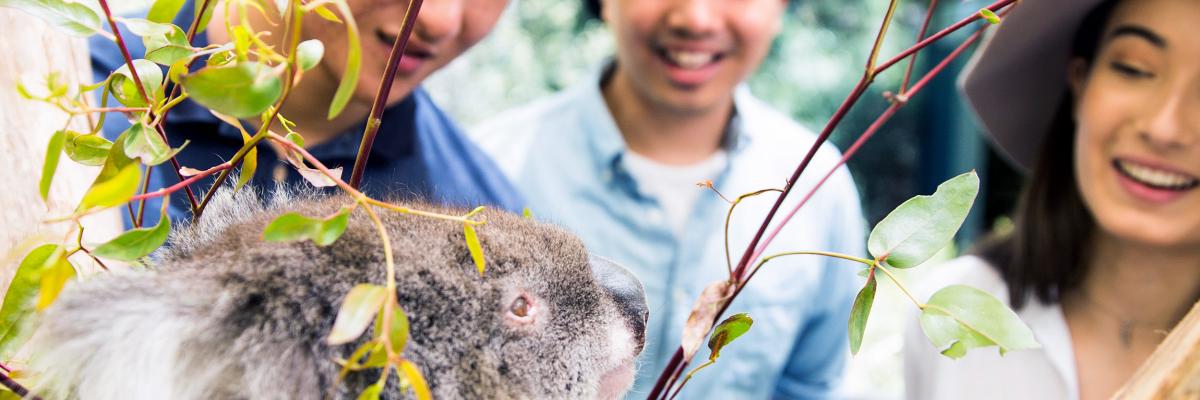
Z
Zoologist
Bugs, birds, beasts of the land - there are endless personalities and mysteries to unpack in the animal kingdom.
Tomorrow’s zoologists and wildlife biologists will use next-gen software, analytics and equipment to learn more about the animal world, protect life, and experiment in the lab.
From student to zookeeper
Michelle Birkett - Adelaide Zoo
"I loved the practical work we did alongside experts in the field and opportunities to help with research. I use knowledge i gained from my degree regularly in my career as a zookeeper.” - Graduate of the BSc (Animal Science)
What will you study?
- Bachelor of Agricultural Sciences
- Bachelor of Applied Data Analytics - NEW
- Bachelor of Science
- Bachelor of Science (Advanced)
- Bachelor of Science (Animal Science)
- Bachelor of Science (Ecotourism)
- Bachelor of Science (Marine Biology)
- Bachelor of Science (Mineral Geoscience)
- Bachelor of Science (Wildlife Conservation Biology)
- Bachelor of Teaching (Middle) with Bachelor of Science
- Bachelor of Teaching (Secondary) with Bachelor of Science
- Honours Degree of Bachelor of Science
- Honours Degree of Bachelor of Science - NEW
- Honours Degree of Bachelor of Science (Advanced) - NEW
- Honours Degree of Bachelor of Science (Mineral Geoscience) - NEW
